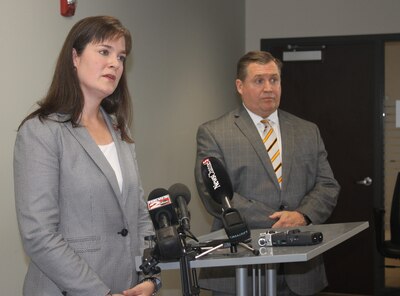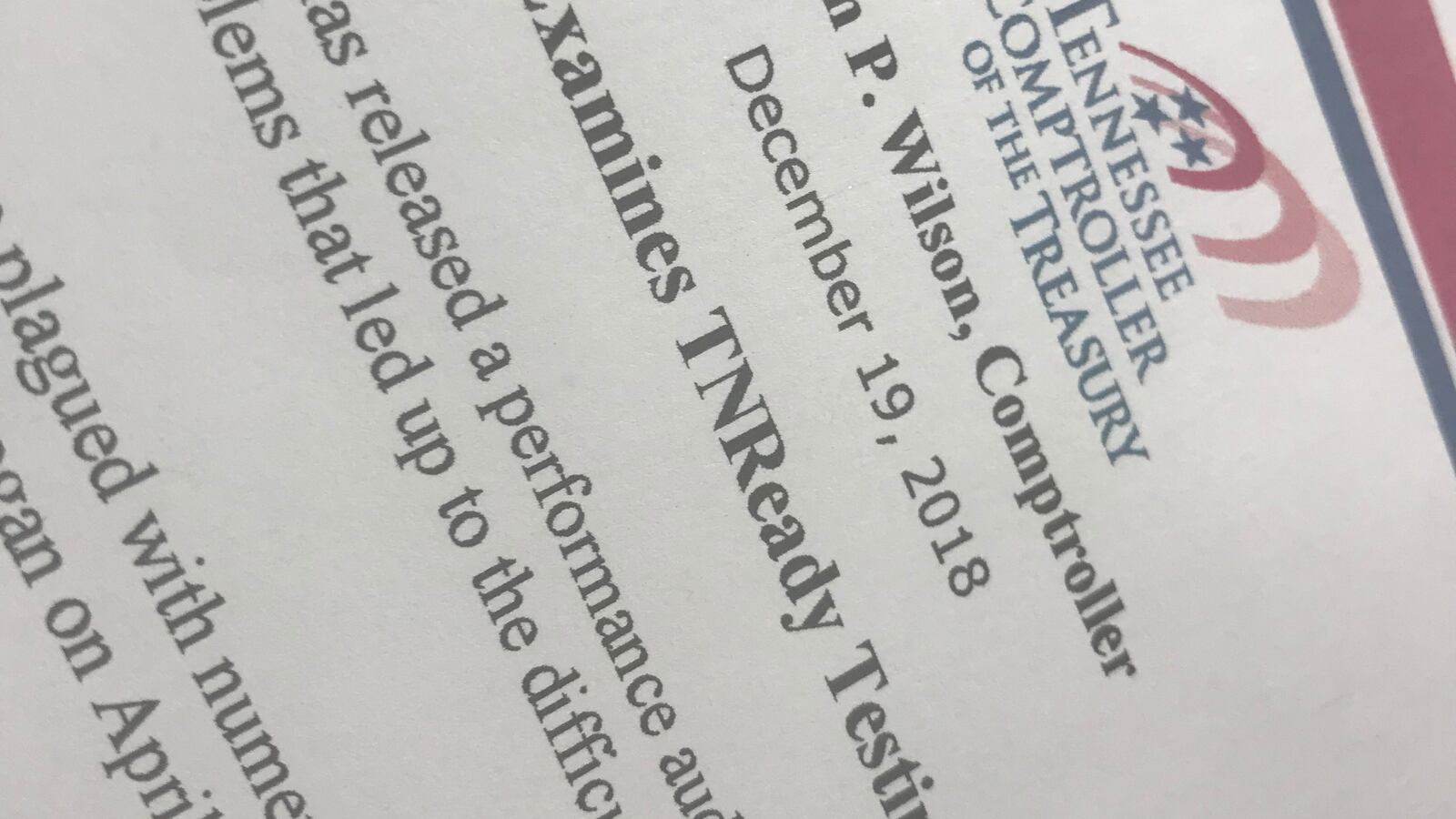The state’s chief investigator on Wednesday released 1,700 pages of mostly negative feedback from teachers about Tennessee’s testing program and blamed testing company Questar for the majority of this year’s online blunders.
Tennessee Comptroller Justin Wilson also scolded the state’s education department for inadequate oversight of the program known as TNReady and said the push to switch to online testing “may have been overly ambitious.”
The comptroller’s audit was released as Tennessee prepares to invite more companies to submit proposals to take over TNReady testing beginning next fall. That request for proposals, which initially was to be released this month, is now set for early 2019 and will include requirements for both online and paper testing.
Questar’s unauthorized change to an online tool was the main culprit behind the technical problems students experienced during a messy return to computerized testing this spring, according to the audit. That tool, which enabled students to turn text into speech if they needed audible instructions, had worked fine the previous fall when a smaller number of high school students had tested online. But Questar changed the feature without the state’s approval before springtime tests taken by the vast majority of Tennessee students.
The Minneapolis-based company also failed to staff its customer support center sufficiently, resulting in lengthy call wait times and high rates of abandoned calls after students struggled to log in, stay online, or submit their exams.
The report confirms many of the early findings the comptroller reported in June. Among them: “There was no cyber attack,” refuting a possible explanation Questar and state officials had offered on the second day of testing problems.
A separate report released Wednesday includes feedback from more than 12,000 teachers who responded to the comptroller’s survey on TNReady. Sixty-six percent of respondents reported being dissatisfied or very dissatisfied with the state’s administration of the test.
The comptroller said the education department didn’t do enough to make sure testing would go smoothly, and the audit cited a lack of written detailed processes to make sure Questar met its deadlines.
Questar and the department also failed to adequately track students’ tests once problems emerged, or to update districts on when to expect the tests to be recovered, leaving schools uncertain if their students completed the required exams.
"We have concerns that the department has proceeded with large-scale procurements involving millions of dollars under intense time constraints."
Tennessee Comptroller Audit
On a broader level, the audit pointed out that Tennessee’s chronic problems with TNReady could be traced back to the legislature’s 2014 order to pull out from a multi-state online testing collaborative — something outside the education department’s control.
Tennessee had been preparing for three years to participate in the Partnership for Assessment of Readiness for College and Careers, known as PARCC, and use the tests it was creating. Political backlash over the Common Core academic standards prompted the state’s abrupt exit — and the need to find another testing company quickly.
Why Tennessee lawmakers share blame, too, for TNReady testing headaches
The testing program has struggled ever since, including the cancelation of most tests in TNReady’s first year due to online failures in 2016 under previous vendor Measurement Inc. Candice McQueen, who became the state’s education chief in 2015, fired that North Carolina-based company and hired Questar to pick up the pieces. But, according to the comptroller, the tight timelines set the state up for problems under both vendors.
“We have concerns that the department has proceeded with large-scale procurements involving millions of dollars under intense time constraints,” the audit said, adding that department leaders “should avoid being forced to implement assessment processes without allowing for adequate time to respond to and resolve potential issues with assessment vendors.”
In line with the comptroller’s recommendations, the state already has slowed its transition to online testing to include only high school students this school year, plus one science field test for grades 5-8.
Questar also has been docked almost $4 million from last year’s $30 million contract. The company will oversee TNReady testing again this school year to close out its agreement with the state, and Questar officials have told Chalkbeat they plan to submit a new proposal to continue testing in Tennessee.

McQueen told lawmakers Wednesday that the issues raised by the audit have been addressed and that Questar must meet additional requirements this year.
She also reported 64,000 high school students on nontraditional schedules just completed fall exams successfully online. But the real test, she acknowledged, will come next spring when all high schoolers take TNReady.
“The smooth testing experience we saw this fall gives us more confidence in the improvements we are making to help our vendor test online at scale,” McQueen said.
The legislature’s Government Operations Committee has ordered McQueen’s successor to report back to lawmakers before spring testing begins.

